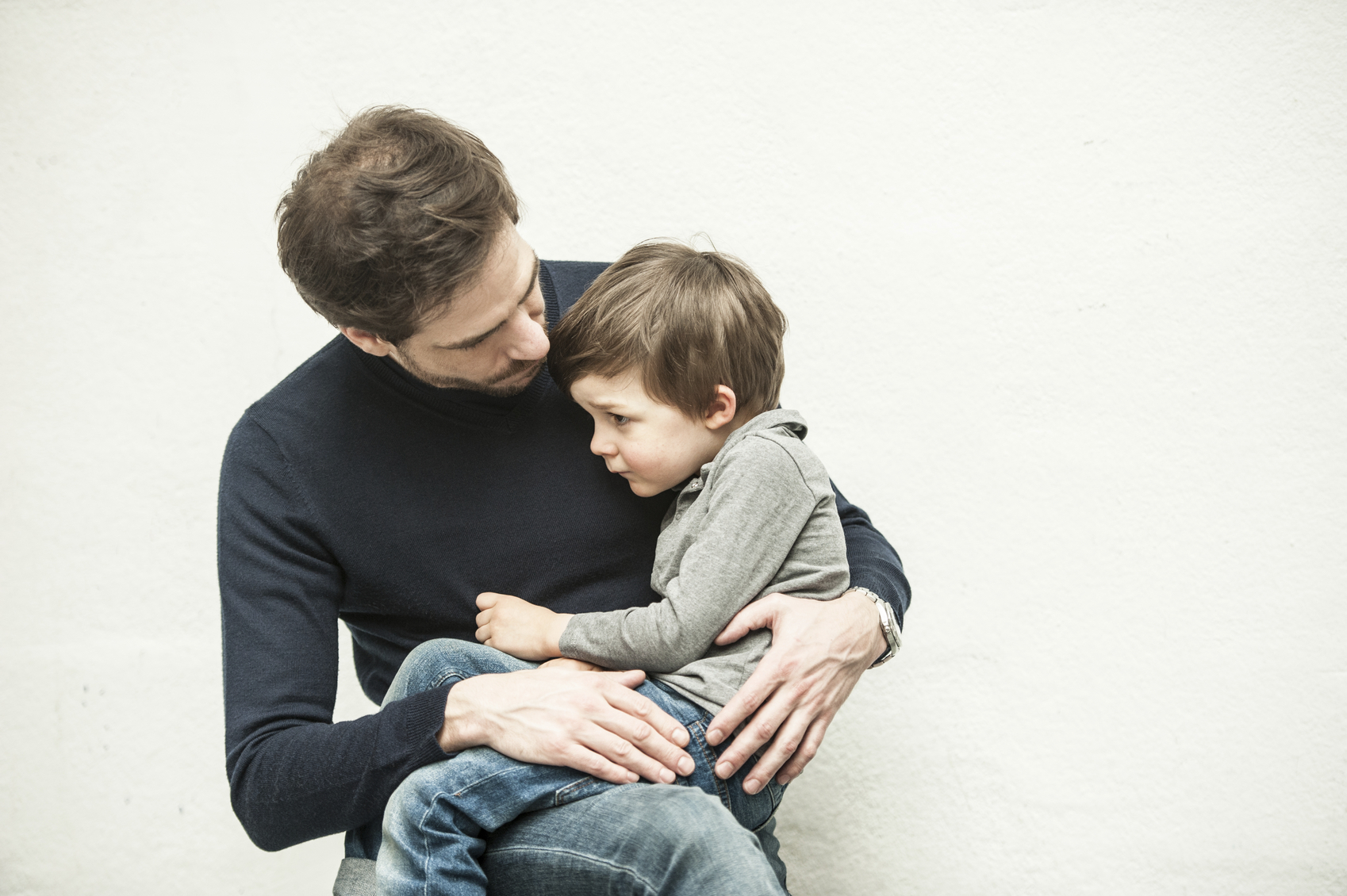
This post originally appeared in January 2017 as a response to threats to Jewish Community Centers (JCCs). Over the years, PJ Library has continued to update this post with new resources to help parents talk to children about challenging topics. An update to this post was made on October 10, 2023 to address what is happening in Israel and the country’s war against Hamas. A new section addressing natural disasters was added in 2024.
Related: Resources For Families to Talk About Israel
Sometimes scary things happen in our community—tragedies, threats, natural disasters, or acts of antisemitism. And while we do our best to shield our children from the scarier parts of life — what do we do as parents, educators and community members when these things hit close to home? How do we talk to our children and support each other through these events? As parents and educators who work with children, we can continue to reassure our kids—and each other—that we'll be there to protect them and do what we can to keep them safe.
Related: Videos to Help Parents and Kids Talk About Scary Situations
We've pulled together a short list of links and resources that parents may find helpful in discussions with their children. Use the navigation buttons below to jump to each relevant section.
Talking to Your Kids About Israel
Related: What Conversations Do We Have With Our Children on the Anniversary of October 7?
The Jewish Education Project hosted a webinar featuring Dr. Samantha Vinokor-Meinrath and noted expert Dr. Sivan Zakai, for parents, educators, and colleagues to address concerns and questions that young children may have about the ongoing violence targeting civilians in Israel. The full webinar is available to watch on the Jewish Education Project Facebook page.
Key takeaways include:
- Don’t be afraid to discuss the situation with your children (children will learn about this moment -- whether directly from you or from others) – it’s far better for you to frame and set the tone for your children to process this.
- You don’t need to have all the answers. You do need to listen to what those questions are and reply to your child the way that only you know how.
- Dr. Zakai also has beautiful scripts for parents and grown-ups to use on kveller.com.
- Reassure your children that they/we are safe.
- If appropriate explain safety protocols and policies in place at their school, your synagogue, JCC etc... that are put in place to keep them safe.
- Limit access to social media and violent videos.
- Embrace moments of Jewish joy with your children.
- Look ahead to Jewish holidays, open and read PJ Library books together, celebrate milestones like a b'nai mitzvah.
For more, see PJ Library's ongoing list of resources.
Talking to Your Kids (General)
The Child Mind Institute recommends parents do the following after a frightening incident like a tragedy or an evacuation:
- Break the news
- Take the cues from your child
- Model calm
- Be reassuring
- Help children express their feelings
- Be developmentally appropriate
For information about developmentally appropriate guidelines for talking school safety with your children, use the following guidelines from the American Academy of Pediatrics:
- Young children need brief simple information that should be balanced with reassurance.
- Upper elementary and early middle school children can handle the information parents have about the school's safety plan.
- Upper middle school and high school students may have strong and varying opinions about causes of violence in school and society. Parents should stress the role that students have in maintaining safe schools.
Discussing Weather Events and Natural Disasters
For families preparing for hurricanes, storms, or other major weather events:
For survivors of natural disasters:
Planning and Being Prepared
The American Academy of Pediatrics has several comprehensive guides for parents:
Consider also developing a secret code with your children. In a blog post about safety in crowds and during marches and large gatherings with kids, blogger Jenn Sutherland-Miller writes:
"Once in awhile we find ourselves in a situation where we want our kids to listen and act immediately. It’s not the time for discussion, or questions, or a debate, or a demand for the reason why. It’s time to shut up and do what Mom or Dad says. We call these “grasshopper” moments. Grasshopper was our first secret code word...if they are in danger, or need us to listen to them for a health and safety alert, they can holler, or whisper, “Grasshopper!” and we’ll drop everything and follow them without question."
Addressing the Covid 19 Pandemic
The following posts include comics and talking points to help assuage fears children may have about the coronavirus or quarantine:
More:
We will continue to update this post, so please do not hesitate to send us suggestions via our Facebook page.
October 11, 2023